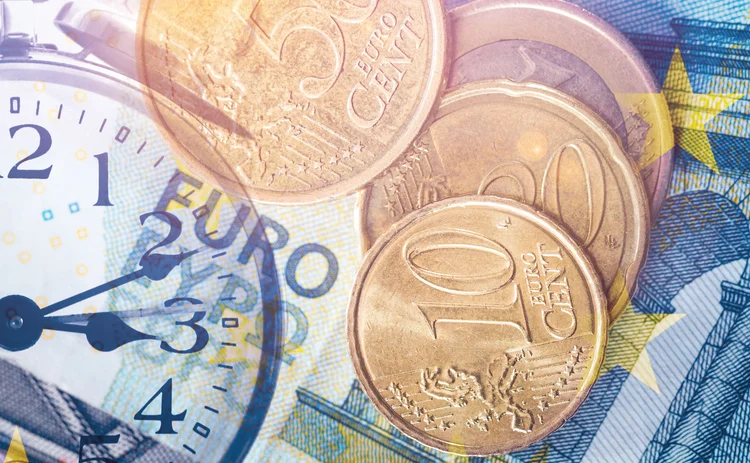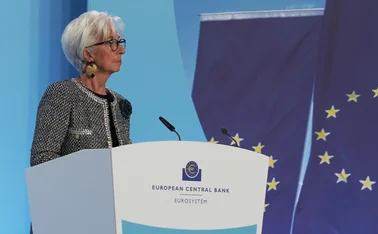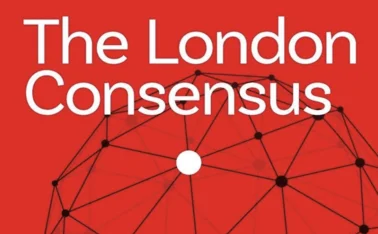
Archive – EMU: a sceptical US view
Allan Meltzer explains why he is worried about union by back door; first published in November 1997

On this side of the Atlantic, European Economic and Monetary Union (EMU) is almost a non-event. In contrast, monetary union is a major event for Europe’s bankers and political classes. There are frequent meetings to work out the technical details and resolve the remaining political ambiguities. There is endless talk about which countries will be in, which will be out, how the ins will maintain relations with the outs, and a host of other issues.
My impression is that there is appropriate scepticism about the benefits claimed by political leaders and considerable doubt as to exactly what the fuss is all about. With unemployment rates at between 10% and 20%, with recession or stagnation common to many countries, there is also massive uncertainty about why political leaders devote so much attention to monetary union.
The European public is right to be both querulous and questioning. The case for monetary union is weak. It is, at best, uncertain whether monetary union will make a net positive contribution to the stability of Europe and to renewed growth of the European economy. The potential of EMU for good or ill ranks far below such issues as: the integration of central and eastern Europe into a harmonious European union; the revamping of the excessive economic burdens of social welfare states; the reform of agricultural policies to permit freer trade within Europe, and particularly between eastern and western Europe; and, as the Bosnian fiasco illuminated, the ability of Europeans to prevent or stop religious, ethnic or tribal wars in Europe. Among the problems that European leaders face, monetary union seems to have little possibility of bringing major advance, but has a considerable risk of causing serious harm.
The proper sort of union
No one who is even dimly aware of European history since 1815 or 1870 can doubt the importance of institutional changes that would make improbably another European war, or another war between France and Germany.
Proponents of monetary union, when pressed about the modest size of the economic benefits, typically fall back to a political argument. [German] chancellor Helmut Kohl – a tireless, and arguably the leading, advocate of monetary union – leaves little doubt that the monetary union is at heart an economic union intended to achieve a political goal: binding France to Germany, and Germany to France. The proposed chains are monetary, not because they are the most effective or the most appropriate. They are not. They have been chosen because Europe, or even Germany and France, are unwilling to mention political union or federation as a feasible near-term prospect. One need only look at the impotent European Parliament at Strasbourg to see how little power has been ceded to a quasi-representative federal institution.
The European public is right to be both querulous and questioning. The case for monetary union is weak. It is, at best, uncertain whether monetary union will make a net positive contribution to the stability of Europe and to renewed growth of the European economy
To an outsider, the obvious road to European union should go through Strasbourg, where a European parliament meets, elected by Europe’s voters. By gradually expanding the parliament’s role, with voter approval, a European union would begin to provide common goods such as defence, foreign policy, air pollution control, rules for trade and asset transfers, rules for migration of labour and capital, and even limited powers to tax citizens of the union.
A union of this kind could claim to be based on the consent of the governed. Its powers and legitimacy would be derived, at least indirectly, from the voters, and the voters would be able to express their dissatisfaction with what parliament had done or failed to do.
Union by the back door
The union that has been proposed has a very unconventional structure. It is not an independent central bank within government, as is the US Federal Reserve Board. The European Central Bank exists outside any government. Its members are appointed by governments for long terms. Ministers of finance or heads of government may whisper in the ears of central bank governors, or they may shout – but the governors are not obliged to listen.
The bank’s goal is fixed by statute to maintain price stability without qualifications. In practice, the bank may take account of economic conditions within the member countries, but it is not obliged to do so. By law, it may not finance government budget deficits.
This is at once a strength and a weakness. The bank will be able to pursue price stability without political interference. But, inevitably, it will be blamed by governments for unemployment and the continued sluggishness of most European economies. After 1999, it will be tempting to blame outsiders for domestic problems. Because monetary union has had little public support or input, it will not have a sizeable constituency supporting its objective.

The case for monetary union, as an important step toward political stability in Europe, has a critical flaw. The US had a single currency when the civil war started. So did Spain, Lebanon and, most recently, Yugoslavia, when they fought civil wars. A common currency is neither necessary nor sufficient to prevent war or political disturbances. The ties that bind France and Germany will have to be much stronger than partnership in the printing presses. And, I believe, competent observers would judge that they are.
An arranged marriage
The EMU is an arranged marriage between France and Germany. The marriage has been arranged at the highest political level. The parties are not the best of friends, but they need each other to accomplish other objectives – some openly confessed, some concealed.
Two of the common objectives are to prevent future political conflict and fix exchange rates. Germany would like to avoid further appreciation of the Deutschmark against virtually all the European currencies, particularly the French franc. France wants to prevent competitive devaluations by some of its European neighbours, particularly Italy and Spain, and to avoid the sense of humiliation from repeated depreciations against the Deutschmark.
Both Germany and France have other objectives that are not discussed directly. Each wants to improve its partner’s conduct after the marriage. Germany wants assurance that France will not return to its profligate ways… The French, on their side, want a bigger voice in the choice of monetary policy
Both Germany and France have other objectives that are not discussed directly. Each wants to improve its partner’s conduct after the marriage. Germany wants assurance that France will not return to its profligate ways. They intend their partner to retain the zeal for low inflation and greater prudence that France lost about the time of World War I and, with the brief exception of the late 1920s and early 1930s, rediscovered only in the past 10 years. The French, on their side, want a bigger voice in the choice of monetary policy, and they dare to hope that they can teach the Germans and their other partners to be a bit more moderate and relaxed about inflation than the Bundesbank.
Each of the partners brings along some junior partners. The Benelux countries and Austria are small economies in the German orbit. They have no prospect of operating an independent central bank or conducting a monetary policy that is independent of Germany’s. Those that tried in the past, such as Belgium, paid a price to restore stability. Monetary union gives them a small voice in policy formation, but it is a larger voice than they have now.

France would like to have Spain and Italy as partners to prevent these countries from devaluing to reduce unemployment when their exchange rates are misaligned. Both countries would like to join. And France would like their voices and votes at the meeting to weaken the influence the German bloc. Spain will pass scrutiny more easily than Italy. Supporting the Italian lira against a possible run during the transition period to a single money has no appeal either to the German government or the voters. And Italian fiscal spending and future deficits to pay future pensions remain extraordinary even after the recent reform.
A marriage or union that starts with the expectation that one’s partner can be reformed usually ends with disappointment – or simply ends
A marriage or union that starts with the expectation that one’s partner can be reformed usually ends with disappointment – or simply ends. If the only objectives of the union were to have a single currency, that goal could be achieved at much lower economic cost, by taking the Deutschmark as the common currency. That would avoid all the costs of adjusting to a new currency with new rules, a new policymaking structure, and uncertainty about the outlook for inflation and exchange rates against non-members. It would eliminate the concerns of holders of long-term German bonds, who would receive payment in euros, a currency of uncertain value.
Of course, that is out of the question for political reasons. France and others would view that outcome as German hegemony, not European integration. Raising this alternative makes clear, again, that the euro is mainly a solution to a political problem of making the marriage look like a union of equals, and giving France at least the appearance of an equal voice in policy.
In union there is weakness
The economic problems of monetary union are severe. The members of the union get the benefit of a fixed exchange rate, but they lose the opportunity to adjust to real disturbances by devaluing. Devaluation is not a panacea, but at times it is a useful tool.

One of those times is when a country’s wages or prices are misaligned. An oil shock, German unification, changes in relative productivity, significant new inventions and differences in regulation are only a few of the ways in which a country’s costs and prices change relative to costs and prices abroad. These and other real disturbances cause some countries to expand more rapidly, while others contract.
There are only three ways in which countries can adjust:
- People can move labour and capital from the contracting to the expanding country. Following the oil shocks of the 1970s, people moved from Michigan and the Midwest to Texas and the southwest as US auto production slowed and oil production rose. This solution faces language and cultural barriers in Europe. Mobility is often low even within countries. For all but menial jobs, mobility is almost nonexistent in Europe.
- A second solution is to force wages and prices to fall in the contracting country relative to prices in the expanding country. For Europe, high minimum wages and welfare benefits severely restrict this means of adjustment. If a single currency would force Europeans to reduce these and other welfare programmes, the indirect benefits for Europe would be larger than the direct benefits. There is little evidence to suggest that such changes are likely – and much that suggests the opposite.
- The third means of adjustment is devaluation or revaluation to reduce export prices and production costs in the contracting country and raise them in the expanding country. Monetary union sacrifices this mechanism without introducing a substitute.
For Europe, fixed exchange rates and the welfare state have brought high unemployment and sluggish growth. Monetary union continues along this path.
Undermining trade
The benefits of a monetary union depend on the number of members and the trade among them, since the benefits of exchange rate stability apply to trade with other members. If all 15 countries in the EU joined the monetary union, 50–75% of trade would take place at fixed exchange rates. However, if the monetary union includes only France, Germany, Austria, Benelux and Ireland, two-thirds of German and French trade would be with non-members. The advantages of the union would be small.
Further members of the EU that do not join the monetary union would retain devaluation as a means of adjustment to disturbances not open to members of the monetary union. Some members of the union would regard devaluation by outsiders as a way of exporting unemployment, particularly when unemployment is high. The EU has discussed this problem, but has not found a satisfactory solution. Demanding fixed exchange rates of countries that are not admitted to membership seems an unlikely solution. Failure to find an acceptable solution poses a long-term threat to the trading union if member countries begin to restrict imports from countries that devalue. The risk is not negligible. Increased trade barriers would be a high price to pay for a partial monetary union.
To gain admission to the monetary union, a country is supposed to meet certain criteria for deficits, debt and inflation. Few countries are likely to meet all the criteria, but the criteria can be waived by a vote of the Council of Ministers. It will be difficult to resolve this problem in a consistent way. Belgium has a debt ratio of 130% of its GDP. It will not meet the supposed criteria of 60% within the lifetime of any living person. Belgium will be admitted, while Portugal – with a debt ratio about half as large – will be excluded.
Far more difficult will be the enforcement of fiscal rules for deficits and debt after a country is admitted to the monetary union. This is a principal point where the economic problem meets the peculiar political structure
Far more difficult will be the enforcement of fiscal rules for deficits and debt after a country is admitted to the monetary union. This is a principal point where the economic problem meets the peculiar political structure. The central bank is not part of any government, so governments have incentives to pursue domestic agendas and shift the financing burden to the central bank. Threats of fines for large deficits may work against small countries, but large countries can use their veto powers to hamstring the EU on other issues unrelated to the fiscal problem. Britain recently gave a preview of how such tactics could be used.
Advocates of monetary union claim it is the next important step. They see monetary union as an integrating mechanism that encourages trade expansion and strengthens the economic ties between France and Germany, and with other members. But, at best, the benefits of monetary union will be small, while the risks are large. It seems increasingly likely that parts of Europe will join. Let us hope that they will have the good sense to abandon the effort if it proves to be costly and divisive.
This article was first published in Central Banking journal, Volume VII, Number 2, November 1997.
Further reading
Only users who have a paid subscription or are part of a corporate subscription are able to print or copy content.
To access these options, along with all other subscription benefits, please contact info@centralbanking.com or view our subscription options here: www.centralbanking.com/subscriptions
You are currently unable to print this content. Please contact info@centralbanking.com to find out more.
You are currently unable to copy this content. Please contact info@centralbanking.com to find out more.
Copyright Infopro Digital Limited. All rights reserved.
As outlined in our terms and conditions, https://www.infopro-digital.com/terms-and-conditions/subscriptions/ (point 2.4), printing is limited to a single copy.
If you would like to purchase additional rights please email info@centralbanking.com
Copyright Infopro Digital Limited. All rights reserved.
You may share this content using our article tools. As outlined in our terms and conditions, https://www.infopro-digital.com/terms-and-conditions/subscriptions/ (clause 2.4), an Authorised User may only make one copy of the materials for their own personal use. You must also comply with the restrictions in clause 2.5.
If you would like to purchase additional rights please email info@centralbanking.com







